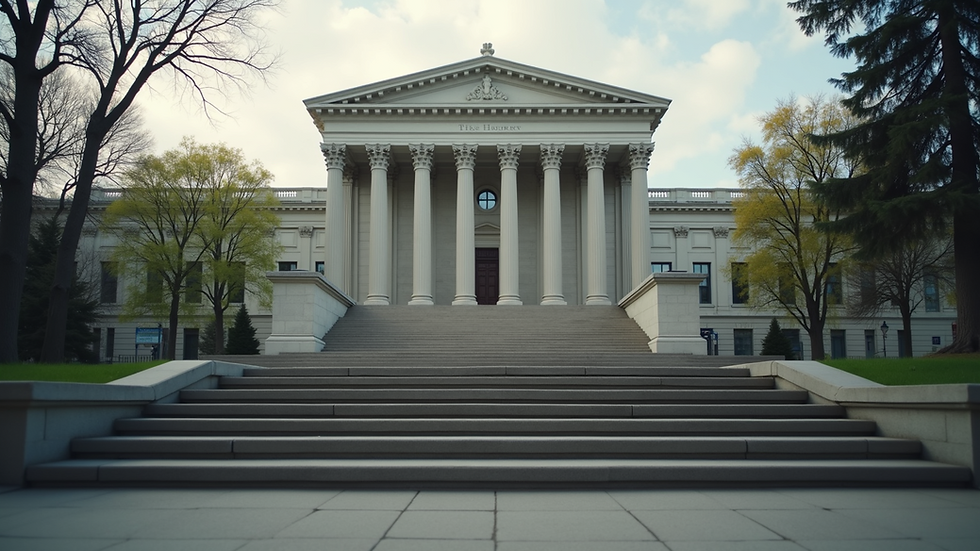Felony vs Misdemeanor: Key Legal Differences
- theclarkefirm
- Sep 15, 2025
- 3 min read
When facing criminal charges, understanding the difference between a felony and a misdemeanor is crucial. These two categories of crimes carry very different consequences, and knowing how they are defined can help you make informed decisions. I want to guide you through the essential distinctions, so you feel confident navigating the legal system.
What Defines a Felony and a Misdemeanor?
At the core, the difference between a felony and a misdemeanor lies in the severity of the crime and the punishment it carries. Felonies are more serious offenses, while misdemeanors are less severe. This distinction affects everything from the length of potential jail time to the long-term impact on your life.
Felonies typically involve crimes such as robbery, assault with a deadly weapon, or drug trafficking. These offenses often result in prison sentences longer than one year.
Misdemeanors include less serious crimes like petty theft, simple assault, or minor drug possession. Punishments usually involve jail time less than one year, fines, or probation.
Understanding these definitions helps you grasp the legal process and what to expect if you are charged.

Felony and Misdemeanor Comparison: Punishments and Consequences
The consequences of a felony versus a misdemeanor are significant and affect many areas of life. Here’s a clear comparison:
| Aspect | Felony | Misdemeanor |
|-----------------------|------------------------------------------|-----------------------------------------|
| Punishment | Prison time over one year | Jail time less than one year or fines |
| Fines | Often substantial | Usually smaller fines |
| Probation | Possible, often with strict conditions | Common, usually less restrictive |
| Loss of Rights | Voting, firearm ownership, and more | Generally no loss of civil rights |
| Long-term Impact | Difficulty finding jobs, housing, and more | Less severe but still impactful |
For example, a felony conviction can lead to losing the right to vote or own a firearm. This is not the case with most misdemeanors. The stigma attached to felonies can also affect your reputation and future opportunities.
If you want to learn more about specific cases, such as drug charges, you can visit this felony vs misdemeanor resource for detailed information.

How Charges Are Classified and Processed
The classification of a crime as a felony or misdemeanor depends on state laws and the nature of the offense. In Tennessee, for example, the law clearly defines which crimes fall under each category.
Felony charges are usually handled in higher courts and involve more complex legal procedures.
Misdemeanor charges are often processed in lower courts and may be resolved more quickly.
The process starts with an arrest, followed by arraignment, where charges are formally presented. Then, depending on the severity, the case may go to trial or be settled through plea agreements.
It’s important to act quickly and seek legal advice if you face any criminal charges. Early intervention can make a significant difference in the outcome.
Practical Steps to Take If Charged
If you find yourself charged with either a felony or misdemeanor, here are practical steps to protect your rights:
Stay calm and cooperate - Do not resist arrest or argue with officers.
Request an attorney immediately - Legal representation is critical.
Avoid making statements without your lawyer - Anything you say can be used against you.
Gather evidence and witnesses - This can help build your defense.
Understand the charges - Ask your lawyer to explain the differences and potential consequences.
Consider plea options carefully - Sometimes negotiating a plea can reduce charges or penalties.
Remember, the legal system can be intimidating, but you are not alone. A skilled attorney can guide you through every step.
Why Legal Representation Matters
Facing criminal charges is stressful. The stakes are high, especially with felonies. Having a knowledgeable lawyer by your side can:
Explain the legal process clearly.
Protect your rights at every stage.
Negotiate with prosecutors for reduced charges or sentences.
Prepare a strong defense tailored to your case.
Help you understand the long-term consequences of a conviction.
In Murfreesboro and surrounding areas, finding a trusted legal team is essential. The Clarke Law Firm is committed to providing high-quality defense services. They understand the local courts and have experience handling both felony and misdemeanor cases.
Moving Forward with Confidence
Understanding the difference between felony and misdemeanor charges empowers you to take control of your situation. Whether you face a serious felony or a less severe misdemeanor, knowing what to expect helps reduce anxiety and prepares you for the road ahead.
If you or someone you know is dealing with criminal charges, don’t hesitate to seek professional help. The right legal team can make all the difference in protecting your future.
Stay informed, stay calm, and take action. Your rights and your life deserve nothing less.




